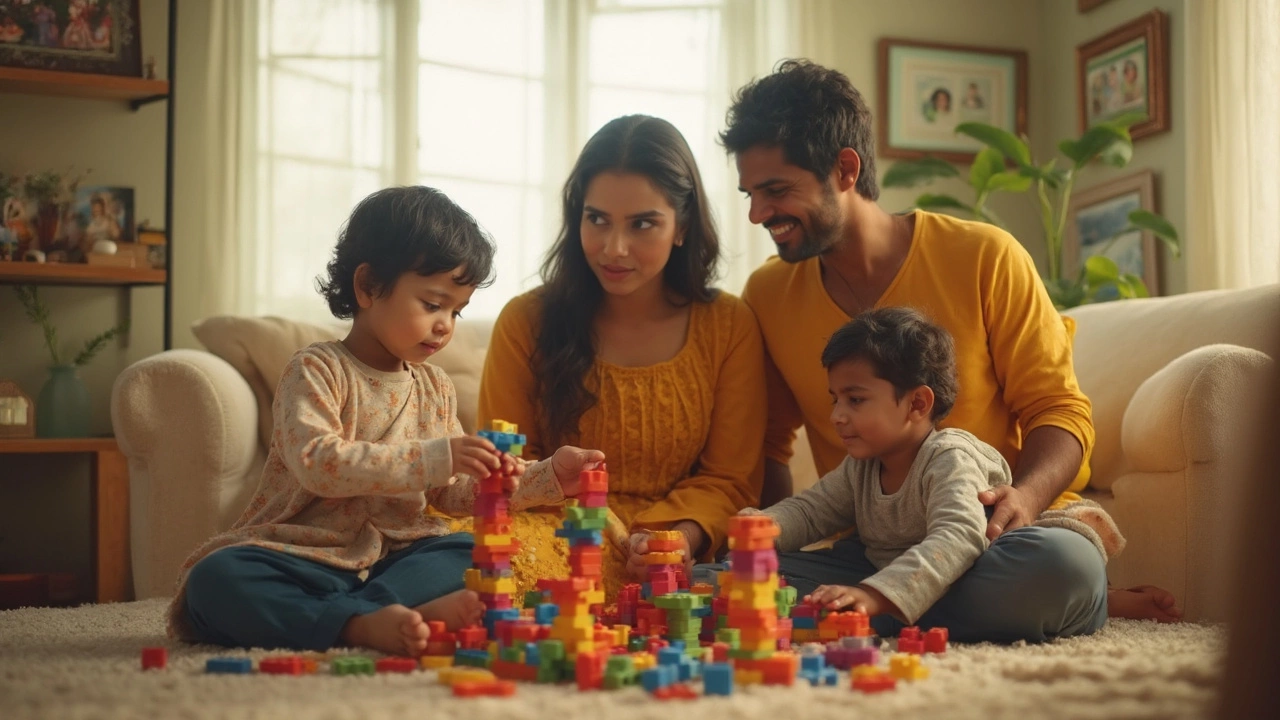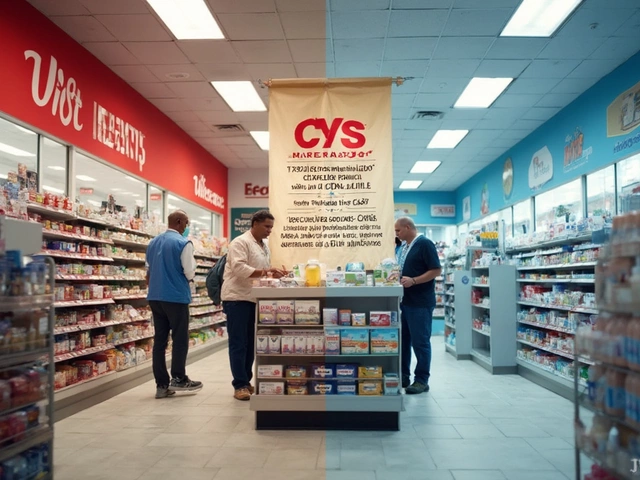- Home
- ::
- Are IVF Babies Normal? Busting Myths and Sharing Facts

Are IVF Babies Normal? Busting Myths and Sharing Facts
Ask anyone who’s gone through IVF—or even thought about it—and you’ll hear the same question: Are IVF babies normal? People whisper about risks, compare notes, and sometimes share stories that sound almost like urban legends. It’s enough to make any parent anxious.
Here’s the thing: IVF babies eat, sleep, cry, and grow up right alongside kids conceived the old-fashioned way. If you watch them chase after ice cream trucks, act goofy at birthday parties, or battle epic tantrums at the supermarket, you’d never spot a difference. The main difference? IVF babies got a little extra help getting started.
Still, it’s natural to wonder what that extra help really means for your child. Does it change their health or development? Should you expect anything unusual? Let’s dig into the details you actually need to know, break down some stubborn myths, and clear up what’s fact and what’s just hearsay. You deserve straight answers—especially if this is something your family is thinking about or already going through.
- IVF in Plain English: What Actually Happens?
- Common Worries: Are IVF Babies Really Different?
- What the Science Says: Health, Development, and More
- Practical Tips for IVF Parents and Parents-to-Be
IVF in Plain English: What Actually Happens?
So, how does IVF really work? It's not mysterious science; it's a series of steps where doctors help the egg and sperm meet outside the body, then put the fertilized egg (now an embryo) back into the woman’s uterus. Sounds simple on paper, right? But it’s a well-organized process, and here’s how it usually goes:
- Ovarian stimulation: The woman takes hormone shots for about 8-14 days. These meds help the ovaries make more eggs than usual—think of it as boosting the monthly egg supply.
- Egg retrieval: When the eggs are ready, the doctor takes them out using a thin needle. It’s a quick outpatient procedure, and most people say it’s more awkward than painful.
- Sperm collection: The sperm sample can come from a partner or a donor. The healthiest sperm are picked out, almost like choosing the best players for a soccer team.
- Fertilization: In a lab, the eggs and sperm meet. Sometimes, the sperm are just mixed with the eggs; in other cases, doctors inject a single sperm directly into an egg (called ICSI, super common now for male infertility).
- Embryo transfer: A few days later, the doctor places one (sometimes two) embryos into the uterus. The hope is that at least one will stick—cue nervous excitement and way too much Googling.
Here's how it usually looks in terms of time and success:
| Step | How Long? | Success Rate* |
|---|---|---|
| Ovarian Stimulation | 8-14 days | - |
| Egg Retrieval & Fertilization | Same day | - |
| Embryo Transfer | 3-5 days after retrieval | - |
| Pregnancy Test | ~2 weeks after transfer | 25-55% per cycle (varies by age) |
*According to the Centers for Disease Control and Prevention, IVF with fresh embryos has a success rate around 40% per cycle for women under 35, dropping as age increases.
This whole process is done in clinics that specialize in assisted reproduction—meaning they do this every day, for thousands of families. The science has gotten so good that over 8 million babies worldwide have been born from IVF since the first one in 1978. That's more than the entire population of Hong Kong! So, when you hear IVF babies, just remember: it's simply a different starting line, not a different finish line.
Common Worries: Are IVF Babies Really Different?
This question pops up at playgrounds, in waiting rooms, and definitely at family dinners. Some folks worry about everything from health problems to personality quirks—just because a child was conceived through IVF. The truth? Most worries don’t match up with the facts.
Let’s tackle the big worries one by one:
- IVF babies are just as likely to be healthy as kids conceived naturally. Big studies, with thousands of children, show that rates of birth defects and developmental delays are almost the same in both groups. Sure, there’s a tiny increase in some risks, like slightly higher odds of low birth weight or premature birth, but those bumps are usually tied to twins or triplets—something more common with IVF, especially in the past.
- What about physical and mental development? Researchers have followed IVF kids into childhood, the teenage years, and even adulthood. They found no big differences in IQ, school performance, or emotional development when compared to other kids.
- People also wonder if IVF kids are more likely to have genetic problems. Truth is, embryos are often screened for major genetic conditions before being transferred. So, in some cases, IVF might even lower the risk of serious inherited disease.
- The only real difference is how these kids got their start. Day to day, they play sports, get sick, and drive their parents nuts, just like everyone else’s kids do.
For folks who want some numbers to back this up, check out this real comparison from published studies:
| Health Outcome | Babies Conceived Naturally | Babies Conceived by IVF |
|---|---|---|
| Major Birth Defects | 2-3% | 3-4% |
| Premature Birth | 8-10% | 10-14% |
| Low Birth Weight | 6-7% | 7-10% |
| Neurodevelopmental Problems | 1-2% | 1-2% |
Bottom line: Being born after IVF doesn’t make a child less "normal." The tiny differences in risk usually link back to things like multiple births—not IVF itself. Most families find that after the first few weeks, nobody asks or even cares how your child entered the world—they’re just keeping up with the chaos of raising a toddler.

What the Science Says: Health, Development, and More
So, does being born through IVF make any real difference to a kid's health or how they grow up? Researchers have been digging into this question for years. Let’s get straight to the facts:
First off, multiple large studies have tracked thousands of IVF babies from birth all the way up through school age and even adulthood. Doctors look at things like birth weight, early health problems, brain development, and even long-term stuff like school grades and mental health.
| Aspect | Main Findings |
|---|---|
| Physical Health | IVF babies are just as healthy as other babies overall. Birth defects are only slightly higher (around 1% bump), but most are mild or fixable. |
| Development | No difference in walking, talking, or other key milestones when compared to naturally conceived peers. |
| Academic Skills | School performance is basically the same as classmates born without IVF. |
| Mental Health | Rates of anxiety, depression, and other common issues are similar between IVF and non-IVF kids. |
If you’re worried about rare medical issues, doctors do spot a tiny increase in things like low birth weight or premature birth in IVF babies. But here’s the twist: a lot of that is because twins or triplets are way more common with IVF, and multiples come with higher risks in general. If you look only at single babies, the gap pretty much disappears.
Ever hear someone say IVF kids are more likely to have "weaker" immune systems or act "different"? That's not true. Pediatricians who see IVF kids every day say they look, act, and grow like everyone else. No need to brace for unusual doctor visits or endless check-ups just because your child was conceived through IVF.
Most big medical groups—like the American Academy of Pediatrics—agree: IVF doesn’t set kids apart in a noticeable way. Of course, every individual child is unique, but being born through IVF isn’t a ticket to trouble or a special set of rules.
- Doctors recommend the same check-ups, vaccinations, and developmental screenings for IVF kids as any others.
- If you have twins or triplets from IVF, expect a bit more attention during pregnancy and after birth, but that’s because of having multiples, not IVF itself.
Bottom line? Science is pretty clear on this one: IVF babies are normal kids with normal lives. The process of getting here is different, but once they arrive, they grow and thrive just like any other child.
Practical Tips for IVF Parents and Parents-to-Be
Going through IVF is a wild ride. There’s all the medical stuff, sure—but then you have family, friends, and your own worries popping in all the time. Living it myself, with my son Ishaan, taught me that information and small, doable actions make the whole journey feel a lot less overwhelming.
First, remember that IVF babies need the same basics as any other kid: love, food, routine checkups, and plenty of hugs. Don’t fall for the old story that you have to treat them like they’re super fragile or made of glass. Yes, the process is high-tech, but once your baby arrives, they’re just a baby. If anything, you’ll spend more time fielding silly questions from curious relatives than anything else.
“There is no difference in normal childhood development between children conceived with IVF and those conceived naturally,” says Professor Geeta Nargund, a leading fertility expert. “Parents should care for their children as they would any other—focus on health, happiness, and love.”
- Take your pediatrician’s advice, not Google’s. Too much online reading can make any parent nervous.
- Keep up with regular child checkups and vaccinations—just like you would for any baby.
- If you really need peace of mind, mention your child’s IVF background to your doctor, just so it’s in their file. It won’t change the care plan much, but it helps with tracking long-term health.
- Don’t stress about disclosing IVF origins unless you’re comfortable. Your child’s birth story is private—share it how you want and when you want.
Many parents ask about the numbers: Are IVF babies healthy, long-term? The answer’s in the data. Check out this quick look at what studies have found:
| Outcome | IVF Babies | Natural Conception |
|---|---|---|
| Full-term birth rate | ~88% | ~91% |
| Developmental delays (age 2-5) | 2.5% | 2.3% |
| Major birth defects | 2.7% | 2.4% |
See the difference? Barely noticeable. Most kids—even after IVF—grow up chasing soccer balls and complaining about vegetables just like everyone else.
One last tip: be kind to yourself. The IVF process is emotionally tough, and it can create extra pressure to be a “perfect” parent. That doesn’t exist. Your job is to be present, loving, and real. If you ever feel overwhelmed, reach out to friends, a counselor, or a local IVF support group. There’s a whole community out there, and you’re not in this alone.

 Health and Wellness
Health and Wellness





Write a comment